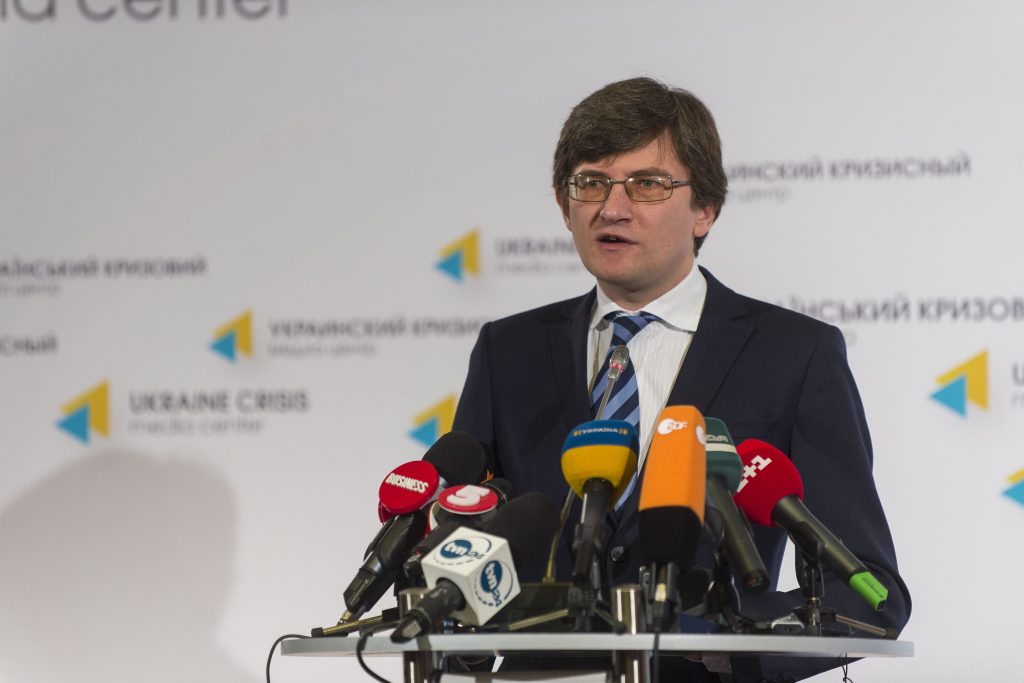Kyiv, 12 May 2014 – No matter what would be the results of pseudo-referendum on May 11 held in Donetsk and Luhansk regions of Ukraine, they are not legitimate and have no legal effect in terms of the electoral law and the Constitution. This official position of the Central Election Commission is reported by Andriy Magera, Deputy Chairman of the СEC of Ukraine, during a briefing at the Ukraine Crisis Media Center. “The consequences can only be expected in terms of the Criminal Code of Ukraine. This is an area for the law enforcement and security agencies to take steps and determine whether there have been acts aimed at overthrowing the constitutional orders and the usurpation of state authority. This is the way we should qualify these actions,” he noted.
A.Magera gave a number of arguments to support the statement that so-called “referendum” held on May 11 in the Eastern regions of Ukraine has no legal grounds. The Law “On All-Ukrainian Referendum” of 2012 allows only 4 types of nationwide referendums: constitutional, treaty (applicable to the changes in the territory of Ukraine according to the procedure provided by the Art.73 of the Constitution of Ukraine, with the decision to be made by Verkhovna Rada), the legislative, and the general ones. The Law of 2012 makes the Law “On National and Local Referendums” of 1991 invalid. “Since 2012, there is no legislation in Ukraine that would regulate the issue of the local referendums’ organization. Also, under the current Constitution of Ukraine (Art. 140, 141), and the relevant provisions of the Law “On Local Self-Administration in Ukraine”, local referendum is a way of resolving certain issues by local territorial communities. While Community is considered to be a village, a town or a city. Thus, any referendum on the level of oblast or district is a priori impossible,” stated A. Magera.
The expert has underlined that any referendum should be held in accordance to the strict procedures of forming election districts, polling stations, and commissions, as well as with resolved issues of processing the lists of voters and tabulation. “Procedure established by the law allows implementing the principles of referendum process which are common right of the participants’ equality, voting secrecy, singularity of vote, freedom of expression. This is impossible at gun point,” he said.
As for the current process of presidential elections in Ukraine, Andriy Magera noted that today polling station commissions are already formed by the district election commissions in 22 regions of Ukraine and Kyiv city. The process is not completed in Lugansk resion at one district, and in Donetsk region at 8 districts out of 22. Residents of temporarily occupied territories are also involved in the electoral process. Currently, more than 800 residents of Crimea and more than 300 residents of Sevastopol city have applied for voting on the mainland of Ukraine. The Central Election Commission has registered 814 international observers. According to A.Mahera, this number could increase to about 900, due to the involvement of the short-term OSCE observers arriving 5 days before the election.
Andriy Yosypovych Magera has been the Deputy Head of the Central Election Commission of Ukraine since 2007 and a member of the Commission since 2004. He is an Honored Lawyer of Ukraine.




